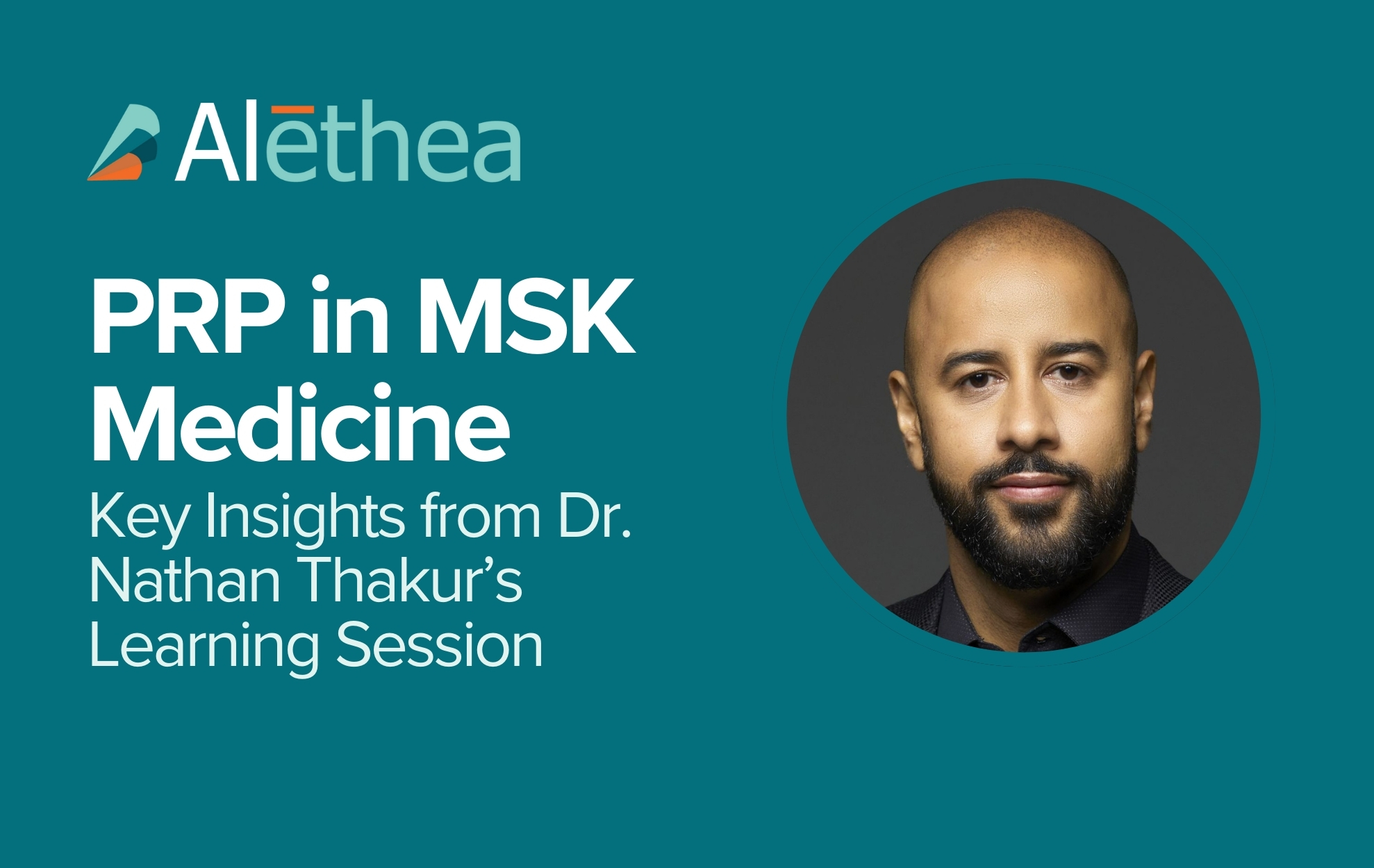Common Breast Pathology in Primary Care: Insights from Dr. Lashan Peiris’ Learning Session

Breast concerns are a common yet often complex aspect of primary care, where early decisions significantly influence outcomes. To help guide family physicians in managing these cases, Alethea recently hosted an exclusive virtual learning session with Dr. Lashan Peiris, Oncoplastic and Reconstructive Breast and General Surgeon and Associate Clinical Professor at the University of Alberta. The session, titled "Common Breast Pathology for Family Doctors," focused on practical strategies for navigating high-risk breast lesions, surveillance imaging, and post-treatment care in primary care settings.
Dr. Peiris is also the Clinical Lead of the Comprehensive Breast Care Program for the Edmonton Zone and the Surgical Site Lead for the Cross Cancer Institute. With his deep expertise in breast cancer surgery, reconstruction, and high-risk breast conditions, Dr. Peiris brought valuable insight into how family physicians can better triage and manage breast pathology in their daily practice.
Why This Topic Matters for Family Physicians
Primary care providers are often the first point of contact for breast concerns, ranging from benign findings to complex post-cancer follow-up. With changing guidelines, increasing imaging sensitivity, and patient anxiety around breast cancer risk, clinicians need a clear approach to diagnosis, management, and referral. Dr. Peiris addressed many of these challenges during the session, providing clarity on when to investigate further and when specialist referral is appropriate.
Key Topics Covered in the Session
- Managing High-Risk Lesions in Primary Care
Dr. Peiris discussed how to interpret and manage lesions such as breast papillomas, radial scars, flat epithelial atypia, and lobular carcinoma in situ (LCIS). He explained that many of these findings do not automatically warrant surgical intervention, and shared evidence-based pathways for surveillance versus referral. - Post-Treatment Surveillance for Breast Cancer Patients
Surveillance imaging after breast cancer treatment is a common concern in family medicine. Dr. Peiris clarified when mammography, ultrasound, or MRI is appropriate and how frequently surveillance should be conducted, depending on patient risk profiles and treatment history. - Endocrine Management After Breast Cancer
For patients on long-term endocrine therapy post-breast cancer, Dr. Peiris addressed questions around side-effect management, when to stop therapy, and the role of primary care in coordinating with oncology. This included practical advice for managing menopausal symptoms and musculoskeletal complaints related to medications like tamoxifen and aromatase inhibitors. - Approaching Complex Breast Imaging Reports
Many physicians struggle with navigating BI-RADS 3, 4, and 5 imaging categories. Dr. Peiris explained how to approach indeterminate findings, the significance of different BI-RADS categories, and when follow-up versus immediate referral is the best course of action. - When and How to Refer to a Breast Surgeon
Dr. Peiris provided guidance on which findings warrant a surgical consult, what work-up to include before referral, and how to set appropriate expectations for patients. He emphasized the value of eConsult platforms like Alethea in triaging cases early, reducing unnecessary wait times, and improving communication between primary and specialty care.
How Alethea Helps with Breast Pathology eConsults
This session also highlighted the growing role of eConsults in enhancing breast care access. Through Alethea’s platform, primary care providers can consult directly with specialists like Dr. Peiris to ask questions such as:
- What’s the appropriate follow-up for a BI-RADS 3 lesion?
- Does this patient with LCIS require surgical consultation or enhanced screening only?
- My patient completed treatment for breast cancer—what surveillance should I provide in primary care?
By offering timely, secure, and evidence-based guidance, Alethea enables physicians to manage more within their scope, reduce unnecessary referrals, and improve patient outcomes.
Breast health is a high-stakes area of family medicine that requires careful judgment, especially when dealing with ambiguous imaging or high-risk lesions. Dr. Peiris’ session provided clarity on navigating these challenges with confidence and emphasized the importance of collaborative care. Whether through streamlined referrals or real-time specialist guidance via Alethea, primary care physicians can play a pivotal role in delivering timely and effective breast care.
Continue Learning: Read the Full Session Notes
Prefer to watch the full recorded session? Email us at sales@aletheamedical.com to request access.







